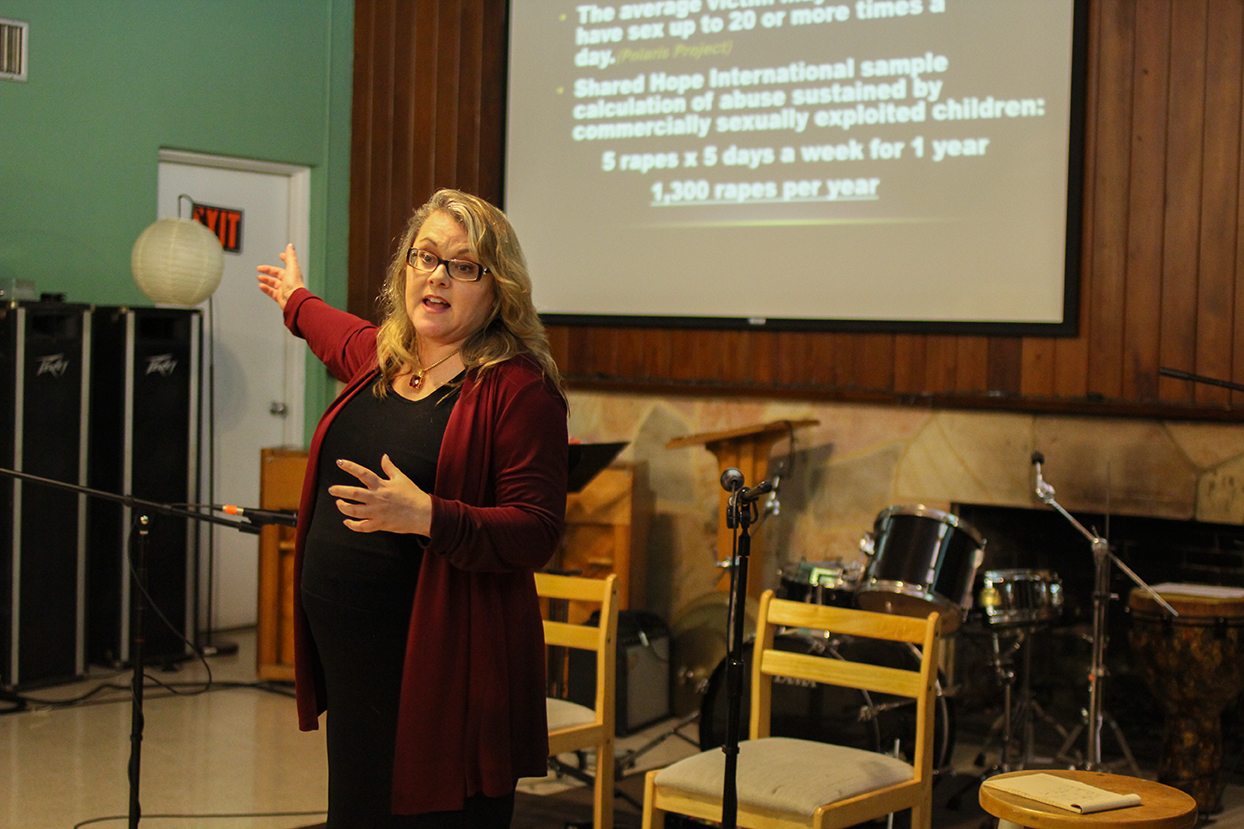
With 600,000-800,000 people trafficked across international borders every year, the month of January is dedicated to raising awareness of human trafficking. Organized by the National Organization for Women (NOW) and Lambda Theta Alpha Latin Sorority, a panel with specialized guests in the field was held on Wednesday to discuss how modern-day slavery can be prevented.
Hosted at and sponsored by the Wesley Foundation Center, Brenda Mezick, a human trafficking prosecutor for the Office of the State Attorney for Miami-Dade County, and Special Agent Victor Williams from the Miami Department of Homeland Security explained how human trafficking is now the fastest-growing and third-largest organized crime activity.
Florida is ranked third in the United States for human trafficking with Miami as one of the greatest problem areas in the state.
“We are an epicenter for this. We are in South Florida where many criminals visit,” Mezick said. “We have many ports where victims are smuggled to and from, we have Disney [in Orlando] where many children are either taken or sold; people can bring in children from anywhere and people won’t know.”
Over the course of Mezick’s 21 years with the office, she has specialized in the prosecution of offenses in the courtroom involving sex trafficking, cyber crimes, capital-sexual battery and homicides. She has also helped to change the laws that decide how Florida approaches human trafficking.
“It used to be a second-degree felony. Now, if the victim is under 18 or incapacitated, it is a life felony,” she said. “There is now no longer a statute of limitations. This is now a Florida law.”
Child exploitation happens the most. Mezick said that the average age of entry into prostitution in the United States is 13 and the average victim is forced to have sex up to 20 times a day. The industry generates $9.5 billion annually in the United States.
Mezick and Williams told stories of children in the Miami community. A 14-year-old gang-raped by 15 men. A girl witnessing her pimp murder another girl, too scared to tell the police about the crime. An 11-year-old whipped by her pimp with a belt buckle, leaving permanent scars.
“These children are by far the most traumatized children I have ever worked with in my entire career,” Mezick said. “At times we cannot prosecute the [offenders] because the victims are too traumatized to confide in the authorities. The pimps have manipulated them, beat them and made them so fearful that they cannot speak to us.”
In Mezick’s opinion, one reason why human trafficking and prostitution is rampant is because of the mainstream media glorifying it. She condemned society for indirectly encouraging prostitution by listening to songs that marginalize these issues, using “Trap Queen,” by Fetty Wap as an example, a song and music video that talks about prostitution.
“[Wap] received two Grammy nominations for that song,” Mezick said. “It makes me want to stay in the shower and take a year of feminism courses. The song has catchy hooks … you hear the song and people think that this is alright.”
She urged participants that our mindset must change to take the first step toward reducing human trafficking.
Special Agent Williams agreed that the media has an effect on how the public is tolerant of prostitution and by extension, human trafficking.
“This is the culture in which we were raised. We glorify pimping, such as MTV’s ‘Pimp My Ride.’ Why are we glorifying it? It’s not cool,” Williams said. “There are shows that glorify prostitution. We allow this to happen in our culture. But now we have laws and new terms for pimping. It is called human trafficking and it is an epidemic.”
Williams also described the modus operandi of pimps: once they find someone vulnerable, they will do whatever they can to isolate the victim. The moment the victim falls unconscious, that victim may never be seen again.
Individually, Williams said that one way to help is to be careful and to let people know that this is happening while collectively erasing the current mindset that exploitation is acceptable in the media.
“It took the community to create this mess; it now takes the community to fix it,” Williams said. “It’s not easy to make change, but whatever inch you take, hold on to it. Any progress helps.”
To report human trafficking to law enforcement, call 866-347-2423. Or to get confidential help from a nongovernmental organization, call 888-373-7888.





